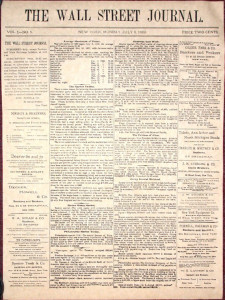WSJ: “Silencers Loophole Targeted for Closure”
Following the talking points used by the New York Times back in February, the Wall Street Journal published an article on Thursday characterizing the ATF’s proposed regulations as closing a “loophole” in the federal firearms law.
The Journal’s Joe Palazzolo interviewed Silencer Shop’s Dave Matheny, who pointed out that the more restrictive regulations would amount to an effective prohibition in jurisdictions with uncooperative local law enforcement officials who refuse to sign NFA paperwork. “‘It’s going to absolutely destroy this market,’ said Mr. Matheny, who employs eight people at his shop. ‘If sheriffs won’t sign, they’ve essentially made them illegal.'”
Noting the timing of the regulations, which come after Obama’s failed attempts to promote new gun control legislation, Palazzolo explains that the administrative rule change does not require legislative approval. Summarizing cases dealing with the existing sign-off, he recounts that:
Federal courts have upheld the sign-off requirement, most recently in 2002. The U.S. Court of Appeals for the D.C. Circuit rejected complaints that the rule allowed law-enforcement officials in Virginia and Alaska to arbitrarily wall off access to weapons and accessories that are otherwise legal.
The proposed rule change is a marked shift from stalled previous proposals in recent years. As previously pointed out by Pennsylvania attorney Joshua Prince, past notices indicated that the agency intended to do away with the CLEO sign-off requirement altogether. The CLEO sign-off is clearly intended to create a de facto prohibition in many jurisdictions controlled by anti-gun politicians.
Both the existing requirement and the new proposal delegate to local authorities a power that the ATF is not supposed to have itself: the power to arbitrarily deny law-abiding citizens the right to register Title II firearms. In the modern world with powerful criminal information databases and instant electronic communication methods, there is no technical reason for local officials to sign off on a person’s fitness for possession of NFA firearms. After all, state officials and even many employers are increasingly relying on federal background checks conducted by the FBI. Furthermore, the requirement places an administrative burden on law enforcement officials who support the right to keep and bear arms but who receive no funding for spending time completing these forms for the federal bureaucracy.




